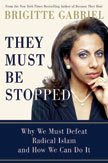As even American consumers are learning, oil is money; less well known is how this money feeds Saudi Arabia and its worldwide network of Madrasses, those fundamentalist schools propagating Islamic Radicalism. Oil money also underpins the Iranian regime and its active support of terrorism via Hamas and Hezbollah.
Paying five dollars per gallon versus four dollars per gallon channels an extra $100 billion of disposable income to these radical Islamist regimes, keeping them awash in even more petro-dollars for their many nefarious schemes.
Why don’t we pay ourselves that extra dollar, that extra 100 billion?
If we add a $1 tax for every gallon dispensed in the USA, then, counter-intuitively, the ultimate price of gas would in fact be forced to drop: First, the U.S. government would have an extra $150 billion with which to increase alternative energy funding, expand safe and environmentally-friendly oil and gas exploration, as well as nuclear and hydroelectric power stations; all crucial contributors to our vital energy independence. This windfall could further fund Social Security and Medicare and reduce income taxes and our national debt, thus endearing this revolutionary tax to Democrat and Republican consumers alike. Even with a $1 tax hike we would still be paying a third less per gallon than all of Europe. It’s the fairest of all taxes as one pays only for what one uses.
Alternatively, and perhaps more palatably for the American consumer, this gas tax could directly reduce sales or property taxes. Thus we would tax that which is detrimental to the environment and our society and give relief where it counts.
Second - and most importantly - this tax would discourage and depress domestic oil consumption substantially. The shock and size of the tax would likely produce a modest glut of oil worldwide, reducing the price of oil in world markets. This consequential fall in the price of oil would critically reduce by tens (and possibly hundreds) of billions of dollars the blood monies flowing to terrorist-supporting states; American coffers, on the other hand, would be filled instead. Ironically, then, some or all of the tax would effectively be paid by Iran and Saudi Arabia, by Venezuela and the OPEC cartel. The American consumer will thus be actively financing freedom instead of terror.
There has been little public discussion of this eminently rational project, truly an honest and elegant solution to arguably our nation’s most pressing concern. The myriad negative externalities associated with oil consumption, terror financing, higher military spending, environmental degradation, among others, should realistically be factored into the price of a gallon of gasoline. While difficult, it should not be impossible to sell this concept to the American public if the consumer understands that when the cost of terror is applied to the price of oil in the form of a transparent tax, billions of dollars will be removed from terror states and to be reinvested in our economy, our country and our energy independence. We will thereby reduce the ability of our enemies to blackmail us, to influence Washington and peddle their agendas worldwide. Call it a “redemption tax.”
Madrassas and terror organizations will run short of funds. Decreasing gasoline consumption with a concomitant increase in alternative energy production will further depress the price of oil, perhaps back to $3/gallon where we started, or even lower.
When gasoline is burnt it emits pollutants. Higher gas taxes as part of a broader carbon tax are the most direct and honest policy to address our environmental concerns. Moreover, the tax would reduce road congestion, gridlock and the inordinate waste of time most of us spend on the highways, quite possibly now costing us another 50 billion dollars or more in decreased productivity. Substantial reductions in road rage and frustration therapy would, I’m sure, be much appreciated by our psychological fraternity.
Consumption taxes are always better than income taxes; the latter discourage savings and investment. This direct tax, by common consensus, would be more favorable to economic growth, encouraging the search for gasoline substitutes and fuel-efficient cars, and more research and development spending on alternative fuels.
Alan Greenspan, the former Chairman of the Federal Reserve, has called for higher gas taxes, noting, in one of his more lucid moments, “It’s a national security issue.” The gas tax is an efficient economic policy that is also an effective foreign policy. It will give America more clout as falling gas prices will tilt power and influence back toward the world’s democracies and away from the oil producing autocracies. Higher gas taxes may not be attractive. However, the alternatives are certainly far worse.
Finally we need to set a fixed floor price for gas - perhaps at say $100 per barrel - that guarantees to all gas as well as alternative fuel investors, researchers and developers that this minimum floor price can be relied upon to ensure energy competitiveness over the long term. Any drop in the oil price below that floor level can be taxed to make up the difference, the revenue thus generated perhaps being allocated to reducing our exploding national debt. Many venture capitalists and developers of new oil fields and alternative energy are reticent to invest what it takes to bring vast new energy resources to fruition for fear that a collapsing oil price will destroy their viability. The floor cap does away with all these impediments and guarantees price stability (on the downside) for all levels in the energy cycle.
We need to plan ahead. To phase in the gas tax would be the softer political approach but would dilute the “shock value” which ultimately will cause the price at the pump to drop by more than the tax increase itself. Instead of us subsidizing world terrorism and its associated anti-American hate-fest, this tax will indirectly ensure our energy independence, a brighter economic future, and ultimately the strengthening of our freedoms. Instead of economic collapse driven by ever increasing gas prices (as predicted by our salivating enemies, including Osama bin Laden), we will be initiating our rebirth as a great and independent nation and a light unto the world.
Posted on SlantRight.com
Time to Change our Oil Policy by Bernard Munk
Raise the Gas Tax - N. Gregory Mankiw (WSJ)
Monday, August 25, 2008
Monday, August 18, 2008
Lest We Forget - Bush as the Consummate Democrat!
Long before Bush Junior was the apple of the Republican Party’s eye, for Bill Clinton and his supporters Saddam Hussein was a priority. They waxed eloquent over both the moral turpitude of this nefarious dictator as well as the international community’s obligation to end his rule and diffuse his threats.
Clinton stated unequivocally in early November 1998 that “Iraqis deserve and desire freedom.” He then signed the Iraq Liberation Act authorizing Saddam’s overthrow. This initiative was supported unanimously in the Senate and by a similarly noteworthy majority of 360 to 38 in the House.
On December 16th, 1998, Clinton--a man liberals revered almost as much as they hate Bush (after all, “Bush lied and our soldiers died”)--presented a powerful plea to the world and the American people. Confirming a four day bombing campaign over Iraq, Clinton argued:
Saddam Hussein must not be allowed to threaten his neighbors or the world with nuclear arms, poison gas, or biological weapons. . . . Other countries possess weapons of mass destruction and ballistic missiles. With Saddam, there is one big difference: he has used them. Not once, but repeatedly. . . . I have no doubt today that, left unchecked, Saddam Hussein will use these terrible weapons again.
Vice President Al Gore stated during an interview with CNN’s Larry King:
You allow someone like Saddam Hussein to get nuclear weapons, ballistic missiles, chemical weapons, biological weapons. How many people is he going to kill with such weapons? . . . We are not going to allow him to succeed
Nor did Democratic opposition to Saddam’s Iraq stop at the White House door. A significant group of U.S. Senators including notable Democrat Carl Levin, Tom Daschle and John Kerry wrote to Clinton pressuring him to “respond effectively” to the “threat posed by Iraq’s refusal to end its WMD programs.”
The subsequent 4-day Operation Desert Fox failed to dissuade Saddam from his WMD program. Meanwhile, Saddam sized the opportunity to renew his crackdown on any opposition within Iraq. The U.N.’s Oil-for-Food program was also an ongoing failure: Iraqis continued to starve while Saddam built ever more palaces. Saddam skimmed off over 20 billion dollars from the program, much of which found its way into the pockets of his French, German and Russian suppliers. (Small wonder these countries were loathe to confront Saddam in the run-up to the current Iraq War.)
In the mid 1990’s then Joint Chiefs of Staff head Colin Powell developed a plan for a ground invasion of Iraq. In early 1999, the Clinton administration studied a variety of plans to overthrow Saddam’s regime. Saddam’s refusal to re-admit the U.N. weapons inspectors provoked U.N. Resolution 1284, which demanded a new inspection regime and set the U.N. (and, by practical implication, the US and Great Britain) on a collision course with Saddam.
It is often overlooked that when Bush took office in January 2001 the United States had already been at war with Iraq for over 10 years, since the first Gulf War. The United Nations had already approved the military and diplomatic framework to locate and destroy WMD remaining in Iraq, to prevent Saddam from secretly developing further WMD and to protect the Kurds in the North and the Shias in the South from his genocidal dictatorship.
By this time Saddam had killed (by conservative estimates) more than one million of his citizens, brutalizing many more in the process; by using chemical weapons during the horrific Iran-Iraq war of 1980-1988, he helped cause the death of even more Iranians. He also used chemical weapons against Iraq’s Kurdish population to obliterate any remaining resistance in the north. In the south, Saddam dealt with a restive (and majority) Shia population by diverting tributaries in the estuaries and marshlands of the unique Shatt Al-Arab delta system, devastating the economic life and traditions of the Shia who had lived there for centuries.
Despite Saddam’s well-known crimes, the tipping point for most of America’s political class was September 11, 2001. In an interview with Dan Rather two days after 9/11, Hillary Clinton presented a determined stance:
“Every nation has to be either for us, or against us. Those who harbor terrorists, or who finance them, are going to pay a price.”
When Bush, strangely slow in rising to the challenge, later repeated Hillary Clinton’s words and sentiments, he was castigated by the world as a warmonger.
Along with Taliban-controlled Afghanistan, Saddam’s Iraq had been clearly identified as a Class-A supporter of terrorism. The Clinton administration had often cited Saddam’s ties to terrorist groups, including Hamas, the PLO, Black September, Arafat’s personal guard (Force 17) and Islamic Jihad. For many years, Saddam had provided a substantial reward for every family of a Palestinian suicide bomber. The CIA confirmed in late 2002 (in their report “Iraqi Support for Terrorism”) that:
“Iraq continues to be a safe haven, transit point, or operational node for groups and individuals who direct violence against the United States. Saddam’s intelligence service supported financially Ansar al-Islam whose members were being trained in al-Qaeda camps in Afghanistan.” (New Yorker, March 2002)
Abu Musab al-Zarqawi, one of al-Qaeda’s top operators found safe harbor in Iraq.
One must remember that over the prior two decades Saddam had not only invaded Iran, but had also occupied the oil rich country of Kuwait, devastating its financial and cultural institutions (not to mention its citizens). Saddam’s reign of terror was the most effective killing machine the Middle East has ever known.
United Nations Special Commission (UNSCOM) had already detailed Saddam’s extensive biological weapons program in 1995. Thereafter Iraq claimed to have destroyed its substantial stockpile. Yet this was never independently confirmed. The French, German, British and Japanese intelligence services all believed in the high likelihood of remaining WMD stockpiles and mothballed programs that could be re-instigated at will.
We now know these fears were exaggerated, in part by Saddam’s own extensive evasions and bravado, in part by activist Iraqi exiles and opposition leaders. Bush’s inference, it reasonably seems, reflected a consensus of local and international assessments on Iraqi WMD, including numerous Senators and spokespeople from the Democratic Party.
In September of 2002, Democrat Charles Schumer convincingly stated:
“Hussein’s vigorous pursuit of biological, chemical, and nuclear weapons, and his present and potential future support for terrorist acts and organizations . . . make him a terrible danger to the people of the United States.”
Hillary Clinton too waxed eloquent:
“My position is very clear. The time has come for decisive action to eliminate the threat posed by Saddam Hussein’s WMD’s.”
So did John Edwards:
“Every day [Saddam] gets closer to his long-term goal of nuclear capability.”
And even the irascible Howard Dean:
“There’s no question that Saddam Hussein is a threat to the U.S. and our allies.”
A majority of democratic Senators (including John Kerry) and 81 democratic Congressmen authorized Bush “to defend the national security of the United States against the continuing threat posed by Iraq.”
Joseph Biden (Democrat) summarized the Party’s consensus at the time when he said,
“Saddam is in material breach. . . . The legitimacy of the Security Council is at stake, (and if) the Security Council does not call for the use of force, I think we have little option but to act with a larger group of willing nations, if possible, and alone if we must.”
Later claims of Bush’s trickery and lies ignore the fact-based position Bush took in reinforcing prior Clintonian affirmations on the subject of Saddam’s threat and the necessity of his removal. In a House debate from October 2002, Nancy Pelosi categorically stated:
“Yes… (Saddam) has chemical weapons. He has biological weapons. He is trying to get nuclear weapons.”
There was really very little that the “warmongers” Bush or Cheney could add.
To remind the Democrats of their pronouncements on the subject of Saddam Hussein would be, to use Al Gore’s inimitable sound bite, “An Inconvenient Truth.”
Operation Iraqi Freedom started on March 21, 2003. The WMD stockpiles were nowhere to be found. However, David Kay, the director of the Iraqi Survey Group, confirmed finding dozens of WMD–related program activities and significant amounts of equipment previously concealed from UNSCOM inspectors. There are some who to this day believe some stockpiles were moved to Syria prior to the outbreak of hostilities.
Kay claimed with conviction that “the world is far safer with the….removal of Saddam.” He furthermore concluded that Saddam and his cohorts were willing to sell WMD know-how to the highest bidder once sanctions were removed and that Saddam viewed WMD as the key to his future power.
Those who are bitter about Bush’s decision to remove Saddam do not generally concern themselves with the likely consequences of leaving this brutal dictator in place. All other options had, to that point, failed. One just has to imagine what Saddam’s resources would have become with today’s runaway oil prices. Bush may ultimately have had little alternative than to go to war, considering the groundswell of pressure all around him, including a majority of the Democratic Party.
George Bush said to Bob Woodward in 2004: “My job is to secure America.” President Clinton had stated with appropriate insight six years earlier:
Let’s imagine the future. What if [Saddam] refuses to comply, and we fail to act,...Well, he will conclude that the international community has lost its will. He will then conclude that he can go right on and do more to rebuild an arsenal of devastating destruction. And some day, I guarantee you, he’ll use the arsenal.
It does seem, in conclusion then, that George Bush was merely extending the Clintonian philosophy. And if Bush was not in power, in September 2001, then indeed, most likely, it is reasonable to assume the leading Democrat in power would have gone to war, a war that may or may not have been prosecuted more efficiently. But war it would have been.
Published on The Absurd Report: http://www.theabsurdreport.com/2008/lest-we-forget-bush-as-the-consummate-democrat-by-leslie-j-sacks/
New Yorker article The Great Terror: http://www.newyorker.com/archive/2002/03/25/020325fa_FACT1?printable=true
Clinton stated unequivocally in early November 1998 that “Iraqis deserve and desire freedom.” He then signed the Iraq Liberation Act authorizing Saddam’s overthrow. This initiative was supported unanimously in the Senate and by a similarly noteworthy majority of 360 to 38 in the House.
On December 16th, 1998, Clinton--a man liberals revered almost as much as they hate Bush (after all, “Bush lied and our soldiers died”)--presented a powerful plea to the world and the American people. Confirming a four day bombing campaign over Iraq, Clinton argued:
Saddam Hussein must not be allowed to threaten his neighbors or the world with nuclear arms, poison gas, or biological weapons. . . . Other countries possess weapons of mass destruction and ballistic missiles. With Saddam, there is one big difference: he has used them. Not once, but repeatedly. . . . I have no doubt today that, left unchecked, Saddam Hussein will use these terrible weapons again.
Vice President Al Gore stated during an interview with CNN’s Larry King:
You allow someone like Saddam Hussein to get nuclear weapons, ballistic missiles, chemical weapons, biological weapons. How many people is he going to kill with such weapons? . . . We are not going to allow him to succeed
Nor did Democratic opposition to Saddam’s Iraq stop at the White House door. A significant group of U.S. Senators including notable Democrat Carl Levin, Tom Daschle and John Kerry wrote to Clinton pressuring him to “respond effectively” to the “threat posed by Iraq’s refusal to end its WMD programs.”
The subsequent 4-day Operation Desert Fox failed to dissuade Saddam from his WMD program. Meanwhile, Saddam sized the opportunity to renew his crackdown on any opposition within Iraq. The U.N.’s Oil-for-Food program was also an ongoing failure: Iraqis continued to starve while Saddam built ever more palaces. Saddam skimmed off over 20 billion dollars from the program, much of which found its way into the pockets of his French, German and Russian suppliers. (Small wonder these countries were loathe to confront Saddam in the run-up to the current Iraq War.)
In the mid 1990’s then Joint Chiefs of Staff head Colin Powell developed a plan for a ground invasion of Iraq. In early 1999, the Clinton administration studied a variety of plans to overthrow Saddam’s regime. Saddam’s refusal to re-admit the U.N. weapons inspectors provoked U.N. Resolution 1284, which demanded a new inspection regime and set the U.N. (and, by practical implication, the US and Great Britain) on a collision course with Saddam.
It is often overlooked that when Bush took office in January 2001 the United States had already been at war with Iraq for over 10 years, since the first Gulf War. The United Nations had already approved the military and diplomatic framework to locate and destroy WMD remaining in Iraq, to prevent Saddam from secretly developing further WMD and to protect the Kurds in the North and the Shias in the South from his genocidal dictatorship.
By this time Saddam had killed (by conservative estimates) more than one million of his citizens, brutalizing many more in the process; by using chemical weapons during the horrific Iran-Iraq war of 1980-1988, he helped cause the death of even more Iranians. He also used chemical weapons against Iraq’s Kurdish population to obliterate any remaining resistance in the north. In the south, Saddam dealt with a restive (and majority) Shia population by diverting tributaries in the estuaries and marshlands of the unique Shatt Al-Arab delta system, devastating the economic life and traditions of the Shia who had lived there for centuries.
Despite Saddam’s well-known crimes, the tipping point for most of America’s political class was September 11, 2001. In an interview with Dan Rather two days after 9/11, Hillary Clinton presented a determined stance:
“Every nation has to be either for us, or against us. Those who harbor terrorists, or who finance them, are going to pay a price.”
When Bush, strangely slow in rising to the challenge, later repeated Hillary Clinton’s words and sentiments, he was castigated by the world as a warmonger.
Along with Taliban-controlled Afghanistan, Saddam’s Iraq had been clearly identified as a Class-A supporter of terrorism. The Clinton administration had often cited Saddam’s ties to terrorist groups, including Hamas, the PLO, Black September, Arafat’s personal guard (Force 17) and Islamic Jihad. For many years, Saddam had provided a substantial reward for every family of a Palestinian suicide bomber. The CIA confirmed in late 2002 (in their report “Iraqi Support for Terrorism”) that:
“Iraq continues to be a safe haven, transit point, or operational node for groups and individuals who direct violence against the United States. Saddam’s intelligence service supported financially Ansar al-Islam whose members were being trained in al-Qaeda camps in Afghanistan.” (New Yorker, March 2002)
Abu Musab al-Zarqawi, one of al-Qaeda’s top operators found safe harbor in Iraq.
One must remember that over the prior two decades Saddam had not only invaded Iran, but had also occupied the oil rich country of Kuwait, devastating its financial and cultural institutions (not to mention its citizens). Saddam’s reign of terror was the most effective killing machine the Middle East has ever known.
United Nations Special Commission (UNSCOM) had already detailed Saddam’s extensive biological weapons program in 1995. Thereafter Iraq claimed to have destroyed its substantial stockpile. Yet this was never independently confirmed. The French, German, British and Japanese intelligence services all believed in the high likelihood of remaining WMD stockpiles and mothballed programs that could be re-instigated at will.
We now know these fears were exaggerated, in part by Saddam’s own extensive evasions and bravado, in part by activist Iraqi exiles and opposition leaders. Bush’s inference, it reasonably seems, reflected a consensus of local and international assessments on Iraqi WMD, including numerous Senators and spokespeople from the Democratic Party.
In September of 2002, Democrat Charles Schumer convincingly stated:
“Hussein’s vigorous pursuit of biological, chemical, and nuclear weapons, and his present and potential future support for terrorist acts and organizations . . . make him a terrible danger to the people of the United States.”
Hillary Clinton too waxed eloquent:
“My position is very clear. The time has come for decisive action to eliminate the threat posed by Saddam Hussein’s WMD’s.”
So did John Edwards:
“Every day [Saddam] gets closer to his long-term goal of nuclear capability.”
And even the irascible Howard Dean:
“There’s no question that Saddam Hussein is a threat to the U.S. and our allies.”
A majority of democratic Senators (including John Kerry) and 81 democratic Congressmen authorized Bush “to defend the national security of the United States against the continuing threat posed by Iraq.”
Joseph Biden (Democrat) summarized the Party’s consensus at the time when he said,
“Saddam is in material breach. . . . The legitimacy of the Security Council is at stake, (and if) the Security Council does not call for the use of force, I think we have little option but to act with a larger group of willing nations, if possible, and alone if we must.”
Later claims of Bush’s trickery and lies ignore the fact-based position Bush took in reinforcing prior Clintonian affirmations on the subject of Saddam’s threat and the necessity of his removal. In a House debate from October 2002, Nancy Pelosi categorically stated:
“Yes… (Saddam) has chemical weapons. He has biological weapons. He is trying to get nuclear weapons.”
There was really very little that the “warmongers” Bush or Cheney could add.
To remind the Democrats of their pronouncements on the subject of Saddam Hussein would be, to use Al Gore’s inimitable sound bite, “An Inconvenient Truth.”
Operation Iraqi Freedom started on March 21, 2003. The WMD stockpiles were nowhere to be found. However, David Kay, the director of the Iraqi Survey Group, confirmed finding dozens of WMD–related program activities and significant amounts of equipment previously concealed from UNSCOM inspectors. There are some who to this day believe some stockpiles were moved to Syria prior to the outbreak of hostilities.
Kay claimed with conviction that “the world is far safer with the….removal of Saddam.” He furthermore concluded that Saddam and his cohorts were willing to sell WMD know-how to the highest bidder once sanctions were removed and that Saddam viewed WMD as the key to his future power.
Those who are bitter about Bush’s decision to remove Saddam do not generally concern themselves with the likely consequences of leaving this brutal dictator in place. All other options had, to that point, failed. One just has to imagine what Saddam’s resources would have become with today’s runaway oil prices. Bush may ultimately have had little alternative than to go to war, considering the groundswell of pressure all around him, including a majority of the Democratic Party.
George Bush said to Bob Woodward in 2004: “My job is to secure America.” President Clinton had stated with appropriate insight six years earlier:
Let’s imagine the future. What if [Saddam] refuses to comply, and we fail to act,...Well, he will conclude that the international community has lost its will. He will then conclude that he can go right on and do more to rebuild an arsenal of devastating destruction. And some day, I guarantee you, he’ll use the arsenal.
It does seem, in conclusion then, that George Bush was merely extending the Clintonian philosophy. And if Bush was not in power, in September 2001, then indeed, most likely, it is reasonable to assume the leading Democrat in power would have gone to war, a war that may or may not have been prosecuted more efficiently. But war it would have been.
Published on The Absurd Report: http://www.theabsurdreport.com/2008/lest-we-forget-bush-as-the-consummate-democrat-by-leslie-j-sacks/
New Yorker article The Great Terror: http://www.newyorker.com/archive/2002/03/25/020325fa_FACT1?printable=true
Friday, August 8, 2008
Incredulous U.N.
The Human Rights Council at the United Nations has now banned any criticism regarding Sharia Law and human rights in the Islamic World. According to President Doru Romulus Costea - and following the efforts of delegates from Egypt, Pakistan and Iran - the Council will no longer tolerate criticism of either Sharia or specific fatwas in the name of human rights.
In many parts of the Islamic world, it is becomingly increasing clear not only that the Quran (the written record of the original oral transmissions of Muhammad’s life teachings) and the Hadith (the later delineations of those teachings) are considered sacrosanct in their perfection, but also the various implementations of these teachings, known as Sharia Law. No evolution or refinements are required. No matter that nearly every multitudinous Muslim sect or group has a differing interpretation of this God-given Sharia Law. Nor that the stoning to death of women, beheading of men, and all the 6th century niceties of feudal Arabia are still part and parcel of the immovable Islamic tradition. Never mind that Sunni will decimate Shia--and vice versa--over differences of interpretations far more modest than those between (modern) Catholics and Protestants, between Hindus and Buddhists. Islamic sect can war on Islamic sect, Arab can criticize Arab.
Because Judaism, Christianity, Hinduism and all other religions are imperfect, they are fair game for any and all attacks. Since Israel, Zionism, America and the Western World were created and developed outside the Islamic World and its divine perfection, they are likewise subject to criticism.
Now, not only has the Islamic God forbidden outside criticism of the Sharia Law, but the UN Human Rights Council (HRC) is its enjoined messenger on earth.
Of course, observers of the HRC should not be surprised. The ostensibly prestigious body has become a revolving door for countries with an ambivalent (or even well nigh invisible) relationship with freedom and democracy. In the two years following its replacement of the equally dictatorship-friendly Human Rights Commission, Algeria, Angola, Azerbaijan, Cameroon, China, Cuba, Egypt, Pakistan, Qatar, Russia, Saudi Arabia, and Tunisia have all been elected to the Council. As a majority of the Council’s resolutions are concerned with Israel, it would effectively cease functioning were it not for its compulsive focus on the Jewish state.
Due to this resolution the Council - and thus, perversely, the UN - is endorsing a worldview in which human interpretation and understanding has been placed beyond the pale of critical thinking and investigation as long as it’s part of Sharia Law or the Islamic tradition. Perhaps we should rename the United Nations and call it the “Nations of Islam - United in Unique and Ineffable Perfection.” Sounds appropriate.
Published on Family Security Matters: http://www.familysecuritymatters.org/authors/id.91/author_detail.asp
Published on Stand Up America: http://www.standupamericausa.com/?p=1599
Published on Muslims Against Sharia: http://muslimsagainstsharia.blogspot.com/2008/08/incredulous-un-bans-criticism-of-islam.html
Published on The Absurd Report: http://www.theabsurdreport.com/2008/incredulous-un-by-leslie-j-sacks/
Published on Europe News: http://europenews.dk/en/node/13092
Wall Street Journal Article "Sounds of Silence": http://online.wsj.com/article/SB121382874218086413.html?mod=opinion_main_commentaries
Posted on Keep Tony Blair blog: http://keeptonyblairforpm.wordpress.com/2008/08/31/islams-war-on-freedom-free-speech-un-hi-jacked/
Posted on Chabad Talk: http://www.chabadtalk.com/forum/showthread.php3?t=9622
Discussed on LorMarie.com: http://lormarie.com/2008/08/19/disturbing-emaili-hope-its-fake/
In many parts of the Islamic world, it is becomingly increasing clear not only that the Quran (the written record of the original oral transmissions of Muhammad’s life teachings) and the Hadith (the later delineations of those teachings) are considered sacrosanct in their perfection, but also the various implementations of these teachings, known as Sharia Law. No evolution or refinements are required. No matter that nearly every multitudinous Muslim sect or group has a differing interpretation of this God-given Sharia Law. Nor that the stoning to death of women, beheading of men, and all the 6th century niceties of feudal Arabia are still part and parcel of the immovable Islamic tradition. Never mind that Sunni will decimate Shia--and vice versa--over differences of interpretations far more modest than those between (modern) Catholics and Protestants, between Hindus and Buddhists. Islamic sect can war on Islamic sect, Arab can criticize Arab.
Because Judaism, Christianity, Hinduism and all other religions are imperfect, they are fair game for any and all attacks. Since Israel, Zionism, America and the Western World were created and developed outside the Islamic World and its divine perfection, they are likewise subject to criticism.
Now, not only has the Islamic God forbidden outside criticism of the Sharia Law, but the UN Human Rights Council (HRC) is its enjoined messenger on earth.
Of course, observers of the HRC should not be surprised. The ostensibly prestigious body has become a revolving door for countries with an ambivalent (or even well nigh invisible) relationship with freedom and democracy. In the two years following its replacement of the equally dictatorship-friendly Human Rights Commission, Algeria, Angola, Azerbaijan, Cameroon, China, Cuba, Egypt, Pakistan, Qatar, Russia, Saudi Arabia, and Tunisia have all been elected to the Council. As a majority of the Council’s resolutions are concerned with Israel, it would effectively cease functioning were it not for its compulsive focus on the Jewish state.
Due to this resolution the Council - and thus, perversely, the UN - is endorsing a worldview in which human interpretation and understanding has been placed beyond the pale of critical thinking and investigation as long as it’s part of Sharia Law or the Islamic tradition. Perhaps we should rename the United Nations and call it the “Nations of Islam - United in Unique and Ineffable Perfection.” Sounds appropriate.
Published on Family Security Matters: http://www.familysecuritymatters.org/authors/id.91/author_detail.asp
Published on Stand Up America: http://www.standupamericausa.com/?p=1599
Published on Muslims Against Sharia: http://muslimsagainstsharia.blogspot.com/2008/08/incredulous-un-bans-criticism-of-islam.html
Published on The Absurd Report: http://www.theabsurdreport.com/2008/incredulous-un-by-leslie-j-sacks/
Published on Europe News: http://europenews.dk/en/node/13092
Wall Street Journal Article "Sounds of Silence": http://online.wsj.com/article/SB121382874218086413.html?mod=opinion_main_commentaries
Posted on Keep Tony Blair blog: http://keeptonyblairforpm.wordpress.com/2008/08/31/islams-war-on-freedom-free-speech-un-hi-jacked/
Posted on Chabad Talk: http://www.chabadtalk.com/forum/showthread.php3?t=9622
Discussed on LorMarie.com: http://lormarie.com/2008/08/19/disturbing-emaili-hope-its-fake/
Thursday, August 7, 2008
Of Good and Evil – Solzhenitsyn on Appeasement
Solzhenitsyn died last Sunday at age 89, the Russian historian who singlehandedly documented the fascist excess of Russian communism and totalitarianism, a dictatorship of terror that caused the deaths of 60 million innocents. His book The Gulag Archipelago (1973) finally buried the West’s infatuation with things socialist, with politics Karl Marxian.
With clairvoyant intuition that would ring today with deafening silence amongst contemporary peaceniks, those “peace at any price” absolutists, those “good and evil are always relative” appeasers, Solzhenitsyn prophetically warned in his acceptance speech for the 1970 Nobel literature prize:
“The timid civilized world has found nothing with which to oppose the onslaught of a sudden revival of barefaced barbarity, other than concessions and smiles,” [1]
The Wall Street Journal (Tuesday, August 5, 2008 Review & Outlook, pg. A18) pays homage to this great writer, who saw absolute evil triumph when good and evil are indelibly melded, who understood that the West blinds itself to such evil in its zealous discarding of moral criteria. Solzhenitsyn warned of
"an atmosphere of moral mediocrity, paralyzing man's noblest impulses," and a "tilt of freedom in the direction of evil . . . evidently born primarily out of a humanistic and benevolent concept according to which there is no evil inherent to human nature." [2]
Unlike our own armchair liberals who wax eloquent on freedom and redemption from their San Francisco penthouse verandas, martini in one hand and The New York Times in the other, Solzhenitsyn’s extended internship in the Siberian prison camps (so eloquently elucidated in his 1968 novel Cancer Ward), exhumed the devastating reality of evil and the undeniable need to confront it.
Solzhenitsyn is a writer for all times, for all the world, whose understanding of man’s proclivity for evil necessitates our readoption of moral courage and a national clarity of vision, particularly in these times of terrorism and nuclear proliferation.
Footnotes:
[1] http://online.wsj.com/article/SB121789190811311707.html?mod=opinion_main_review_and_outlooks
[2] http://online.wsj.com/article/SB121789190811311707.html?mod=opinion_main_review_and_outlooks
The Wall Street Journal Article:
http://online.wsj.com/article/SB121789190811311707.html?mod=opinion_main_review_and_outlooks
"Solzhenitsyn, Optimist" - The Wall Street Journal:
http://online.wsj.com/article/SB121822920626825461.html
Published on The Absurd Report: http://www.theabsurdreport.com/2008/of-good-and-evil-solzhenitsyn-on-appeasement-by-leslie-j-sacks/
With clairvoyant intuition that would ring today with deafening silence amongst contemporary peaceniks, those “peace at any price” absolutists, those “good and evil are always relative” appeasers, Solzhenitsyn prophetically warned in his acceptance speech for the 1970 Nobel literature prize:
“The timid civilized world has found nothing with which to oppose the onslaught of a sudden revival of barefaced barbarity, other than concessions and smiles,” [1]
The Wall Street Journal (Tuesday, August 5, 2008 Review & Outlook, pg. A18) pays homage to this great writer, who saw absolute evil triumph when good and evil are indelibly melded, who understood that the West blinds itself to such evil in its zealous discarding of moral criteria. Solzhenitsyn warned of
"an atmosphere of moral mediocrity, paralyzing man's noblest impulses," and a "tilt of freedom in the direction of evil . . . evidently born primarily out of a humanistic and benevolent concept according to which there is no evil inherent to human nature." [2]
Unlike our own armchair liberals who wax eloquent on freedom and redemption from their San Francisco penthouse verandas, martini in one hand and The New York Times in the other, Solzhenitsyn’s extended internship in the Siberian prison camps (so eloquently elucidated in his 1968 novel Cancer Ward), exhumed the devastating reality of evil and the undeniable need to confront it.
Solzhenitsyn is a writer for all times, for all the world, whose understanding of man’s proclivity for evil necessitates our readoption of moral courage and a national clarity of vision, particularly in these times of terrorism and nuclear proliferation.
Footnotes:
[1] http://online.wsj.com/article/SB121789190811311707.html?mod=opinion_main_review_and_outlooks
[2] http://online.wsj.com/article/SB121789190811311707.html?mod=opinion_main_review_and_outlooks
The Wall Street Journal Article:
http://online.wsj.com/article/SB121789190811311707.html?mod=opinion_main_review_and_outlooks
"Solzhenitsyn, Optimist" - The Wall Street Journal:
http://online.wsj.com/article/SB121822920626825461.html
Published on The Absurd Report: http://www.theabsurdreport.com/2008/of-good-and-evil-solzhenitsyn-on-appeasement-by-leslie-j-sacks/
Subscribe to:
Posts (Atom)





















